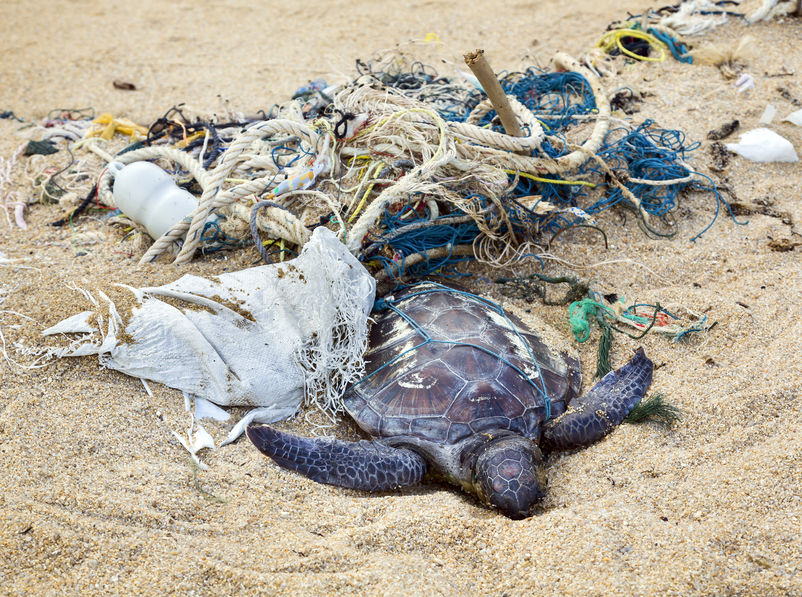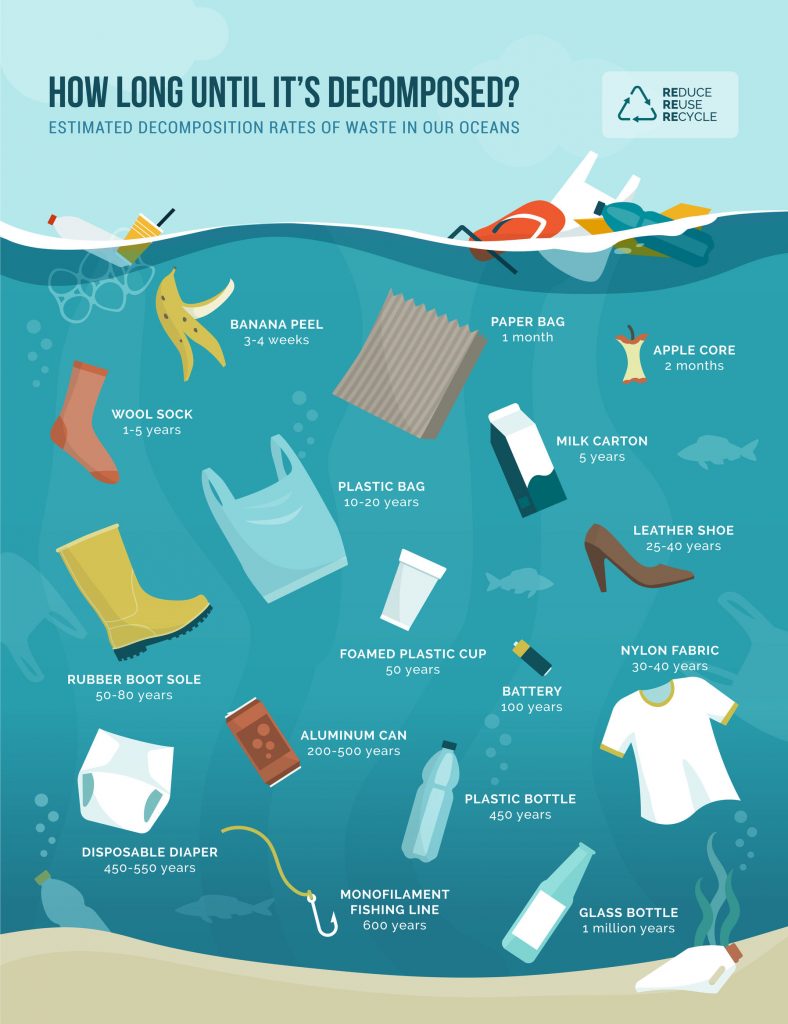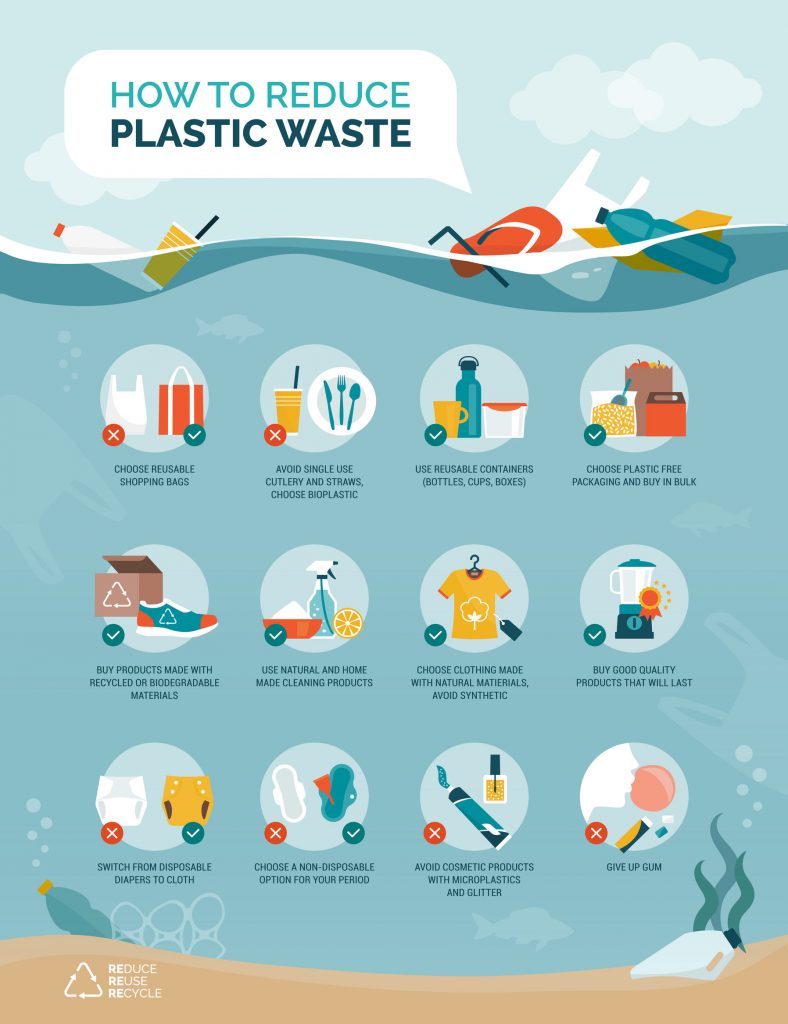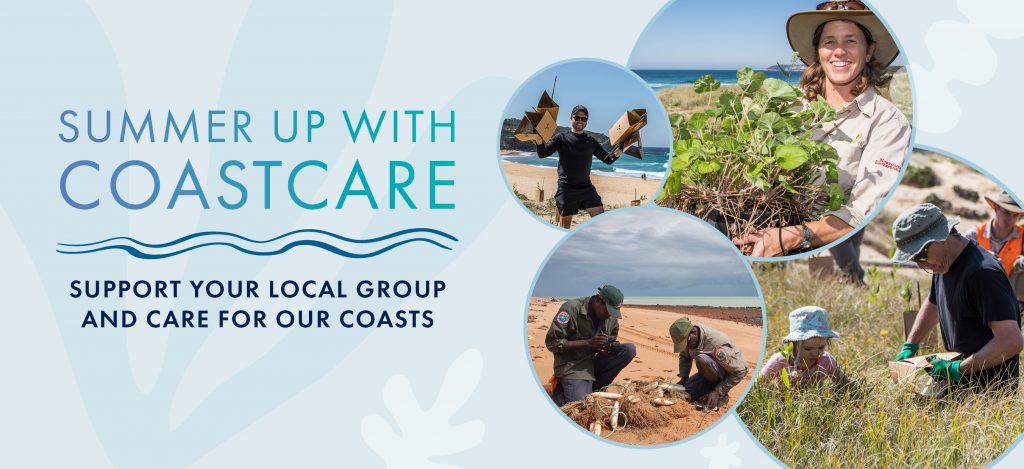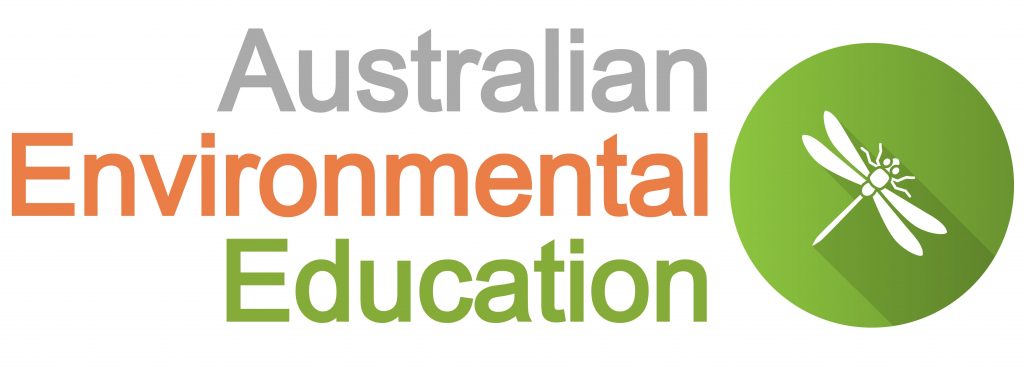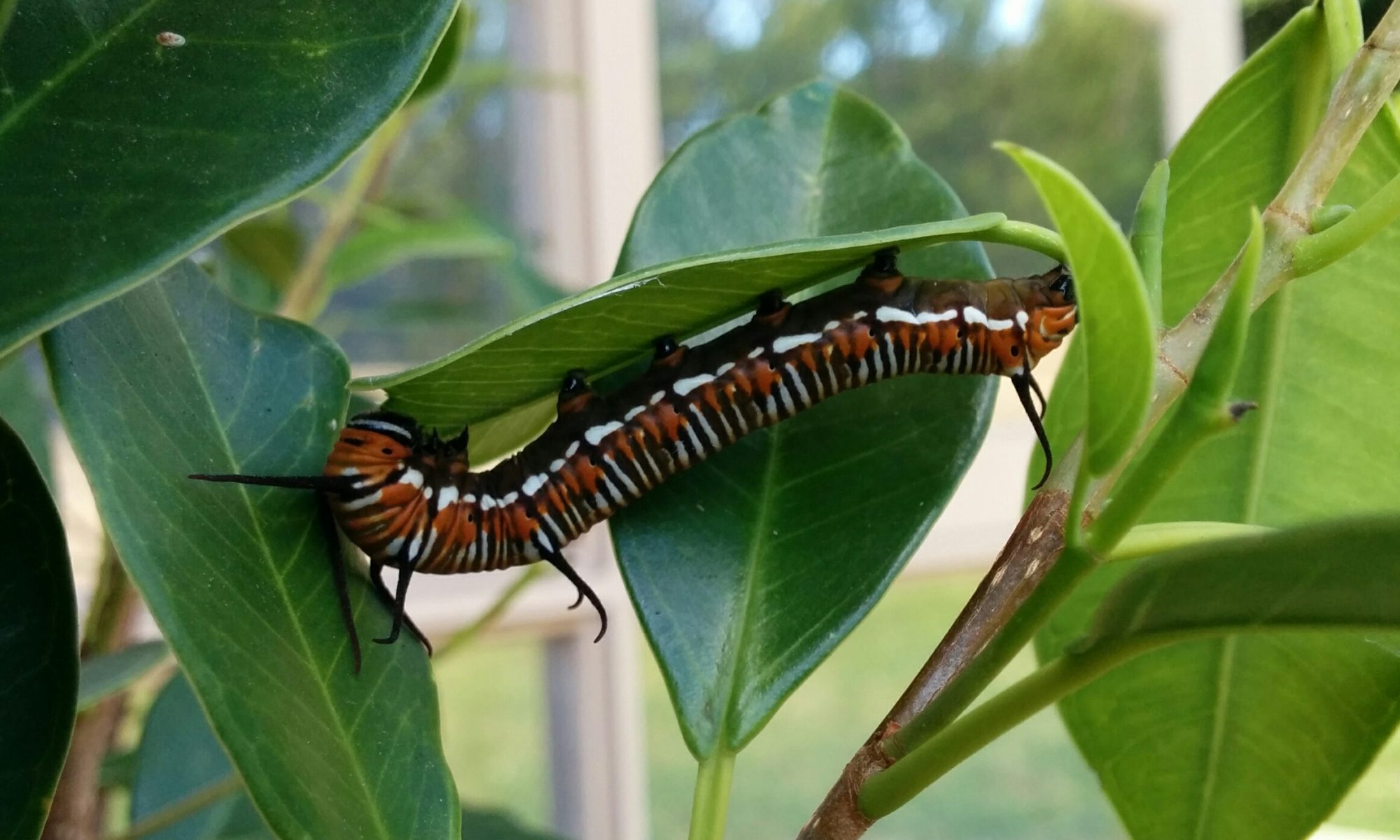Over 75% of the rubbish removed from our beaches is made of plastic. Plastics don’t biodegrade, they breaks down into smaller and smaller pieces called microplastics.
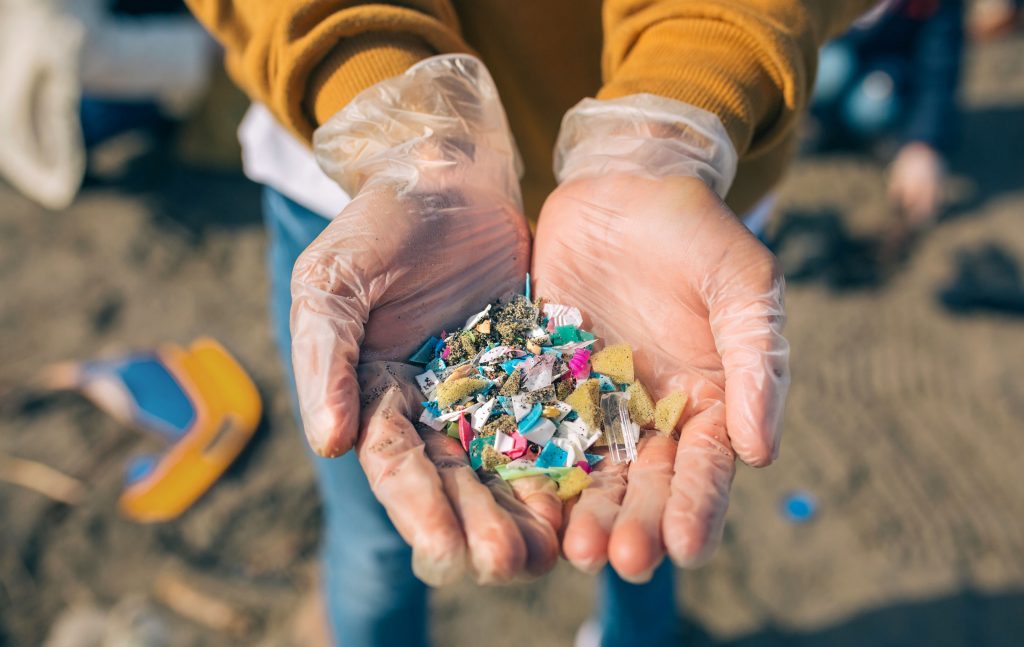
Microplastics are small pieces of plastic less than 5mm in size and are the most abundant form of solid-waste pollution. It has been found in all the worlds oceans and even in the deep sea. Microplastics include microbeads, plastic pellets and plastic fibres and form from broken down parts of larger plastics.
Floating plastics absorb toxins dissolved in the water and when ingested these toxins enter the food chain. Over time plastics and toxins accumulate in the foodchain.
Another major issue for marine species is entanglement in fishing line and other marine debris.
